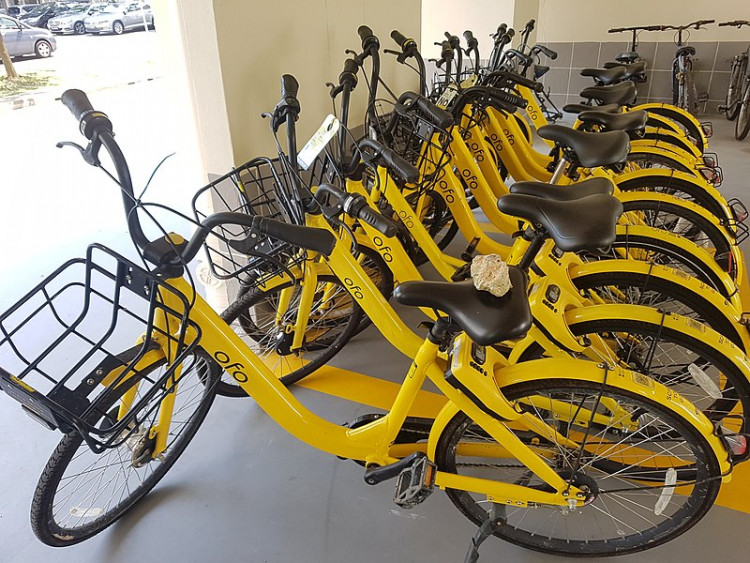Singapore's Land Transport Authority (LTA) has announced that it has suspended the operating license of the Chinese bike-sharing service Ofo. According to the agency, Ofo has apparently missed meeting the deadline to comply with their regulatory requirements. The suspension officially took effect on Valentine's Day. The LTA instructed Ofo to immediately remove all of their active bicycles from public areas within 30 days.
According to reports, Ofo failed to meet with the LFA's various regulatory requirements despite the agency sending the company numerous letters and warnings. The LFA previously requested the company to implement a new QR code-based parking system, which can be used by the agency to assign designated areas for the company's bicycles. The agency also requested that the company update its app to automatically disqualify frequent offenders who place their bicycles outside of designated areas.
Another requirement that was not met by the company was the agency's request for Ofo to reduce its fleet of bicycles in the country. Last year, Ofo had about 70,000 bicycles in operation. The LFA requested that the company reduce its fleet to only 10,000 bicycles. In a recent statement issued by the LFA, the agency explained that the company had left them no choice but to suspend their operating license. However, the agency expressed its willingness to lift the suspension if Ofo meets all their requirements in a timely manner. The agency also warned that if that does not happen, they are prepared to totally cancel their license to operate in the country.
The bike-sharing service was initially founded in Beijing, China in 2014. At its peak, the company was operating in over 20 countries worldwide and was valued at around US$2 billion. Its initial success was, however, only short lived as last year the company's CEO Dai Wei reportedly told employees that the company was considering filing for bankruptcy.
Last year, the company had reportedly stumbled into a number of issues that immensely affected its finances. Reports have revealed that the issues may have stemmed from possible miscommunications between investors and the company's management. Around the same time, Chinese media reported that millions of users in the country were unable to get refunds for their deposits, which was a requirement to use the company's app. Other customers reportedly complained about erroneous charges on their bank accounts and credit cards, which they had to link to the platform.
Ofo has not yet released any statements in response to Singapore's suspension of their operating license. Since last year, hundreds of employees have been reportedly laid off. The company has also closed down their international division and they have also reportedly vacated their office in One Shenton Way in Singapore.






